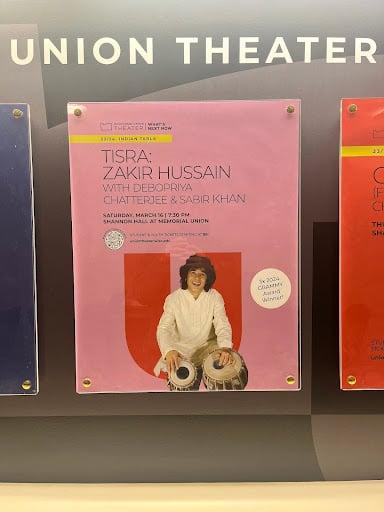“She hates a lot of things that I do but she’s my woman, boy. My woman, and do you know why? Because she needs a man, a real man – not some gutless boy” – “Mudhoney” (1965).
Recalling the conflict between an abusive husband and his wife in the film “Mudhoney,” Norah Jones’ (born Geethali Norah Jones Shankar) fifth solo album Little Broken Hearts ponders the tension between infidelity and self-consuming desire. Jones adopts the image of the femme fatale by recreating the film’s theatrical poster on the album’s jewelcase. Although her starlet features suggest girlish innocence, Jones’ pursed lips and gritted teeth reveal her sinister intentions. To her talent for plucking black and white piano ivories and coils of guitar wire, Jones adds murder and chloroform.
Born to renowned sitar player Ravi Shankar, Norah Jones has traveled far since her debut. Her first album, Come Away with Me (2002), garnered eight Grammy awards, placing Jones firmly into the American jazz canon. However, Jones has consistently demonstrated her talent for thriving in multiple music genres. With The Little Willies, Jones performed country ballads; with the late Ray Charles, blues standards; with Talib Kweli, hip hop jams. Her work is prolific. Nearly every year, Jones has released an album, either solo or collaborated. She has made multiple cameo appearances on television and starred in a feature-length film.
Many reviewers have described Jones’ darkening tone within her lyrics. However, it would be a mistake to view her gravity as one-dimensional. Jones’ previous solo album, The Fall (2009), addressed heavy themes in humorous ways, comparing the follies of passion to “Chasing Pirates.” In the track “Man of the Hour,” Jones concludes that the ideal man is, in fact, a dog. Similarly in much of Little Broken Hearts, she imbues humor into sadistic lyrics by delivering them playfully.
Jones follows a classic narrative arc – each track pushes the story along. Act one begins with the scene of Jones’ departure from a burnt-out romance in “Good Morning.” Yet, even as she recognizes its clear failure, she is also attuned to her reluctance to make the decision to leave: “And maybe powerful actions/ Or powerful feelings/ Will keep me from going,” Jones admits. She has revisited this issue multiple times, as her “thoughts on leaving/ Are back on the table.”
Jones finds resolve in her anger, expressing it in the title track “Little Broken Hearts.” But while she ponders this feeling during “Say Goodbye,” Jones experiences guilt like a repeated blow to the face. She admits to her indiscretions and describes parables learned through infidelity. “Well, it ain’t easy to stay in love/ If you can’t tell lies.” Neither she nor her partner leaves their relationship untarnished.
Jones’ internal conflict continues to saturate the second half of the album, at times appearing bipolar. When she finally does leave during the song “Out On The Road,” she concludes that the only way to escape destruction is to remove any trace of her relationship altogether. This includes the original source of her partner’s temptation: his mistress, “Miriam.”
The haunting climax of Little Broken Hearts is Jones’ moment of vengeance. She becomes sociopathic, singing of the happiness that murdering Miriam will bring: “Oh Miriam/ That’s such a pretty name/ And I’ll keep saying it/ Until you die/ Miriam/ You know you done me wrong/ I’m gonna smile when/ You say goodbye.”
Little Broken Hearts explores a messy conjunction of feelings. Jones applies truisms and tropes to her experience, making them personal and shamelessly public. She is able to transform them into cohesive patchwork. Jones clearly did not enjoy the experience, yet the album still revels in her self-destruction. Spun through her breathy alto, Jones has fallen and effectively dragged the listener down with her.
By the end track, “All A Dream,” we are dazed without a resolution to Jones’ pain. One thing remains clear, however. Like Sidney Brenshaw in “Mudhoney,” Jones knows she can never fully detach.
“You never hurt/ Someone who wants to learn/ To be your slave.”
4 stars out of 5



















